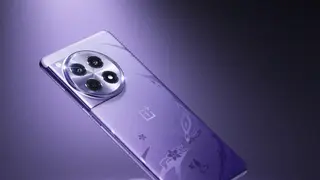The Prime Minister’s Office will take a final call on imposition of import duties on mobile phones after weighing the pros and cons of taking such a decision, a government official has said.
While, on one hand, levying of basic customs duties on mobile phones could ensure a competitive edge for domestic manufacturing as imports will remain more expensive in the goods & services tax (GST) regime, it could also spell trouble at the World Trade Organisation, where several countries are already accusing India of trying to breach the global Information Technology Agreement (ITA-1).
Domestic push
“The PMO has been presented with all possible scenarios and its call will be final on the matter,” a Commerce Ministry official told BusinessLine.
The Department of Telecommunication made a case for imposition of basic customs duty on imported mobile phones to maintain the duty differential being enjoyed by domestic manufacturers (a 12.5 per cent countervailing duty is applicable on imported mobile phones compared with a 1 per cent excise duty for those made in India), which will disappear once the GST regime is implemented in July.
India’s justification
What is creating trouble is the fact that India has committed at the WTO under the ITA-1 pact not to impose customs duty on mobile phones.
The DoT’s argument, backed by that of the Attorney General, is that mobile phones have evolved into smart gadgets carrying out multiple functions since the ITA was signed in 1996 and the new instruments are not covered under the pact.
“But there are two sides to the argument.
“Mobile phone exporting countries such as Japan, South Korea, the US and the EU have trashed India’s justification and said that no matter however evolved, mobile phones remain mobile phones, and hence, imposition of customs duty on them would be in breach of the ITA,” the official said.
Verdict soon
The PMO is aware of the situation and the implications of taking a decision either way, the official said, adding that it will come up with its verdict soon.
There wouldn’t be a problem in imposing basic customs duty if the PMO decides it is in national interest even if it is challenged at the WTO.
“It takes at least three years for a case to be fought, a verdict given and then implemented. The domestic industry would have moved a long away ahead in that time period,” the official said.
Smart or not
DoT argues that mobiles have evolved into smart gadgets that are not covered under WTO’s IT Agreement of 1996.
Mobiles remain mobiles, insist exporting countries.







Comments
Comments have to be in English, and in full sentences. They cannot be abusive or personal. Please abide by our community guidelines for posting your comments.
We have migrated to a new commenting platform. If you are already a registered user of TheHindu Businessline and logged in, you may continue to engage with our articles. If you do not have an account please register and login to post comments. Users can access their older comments by logging into their accounts on Vuukle.